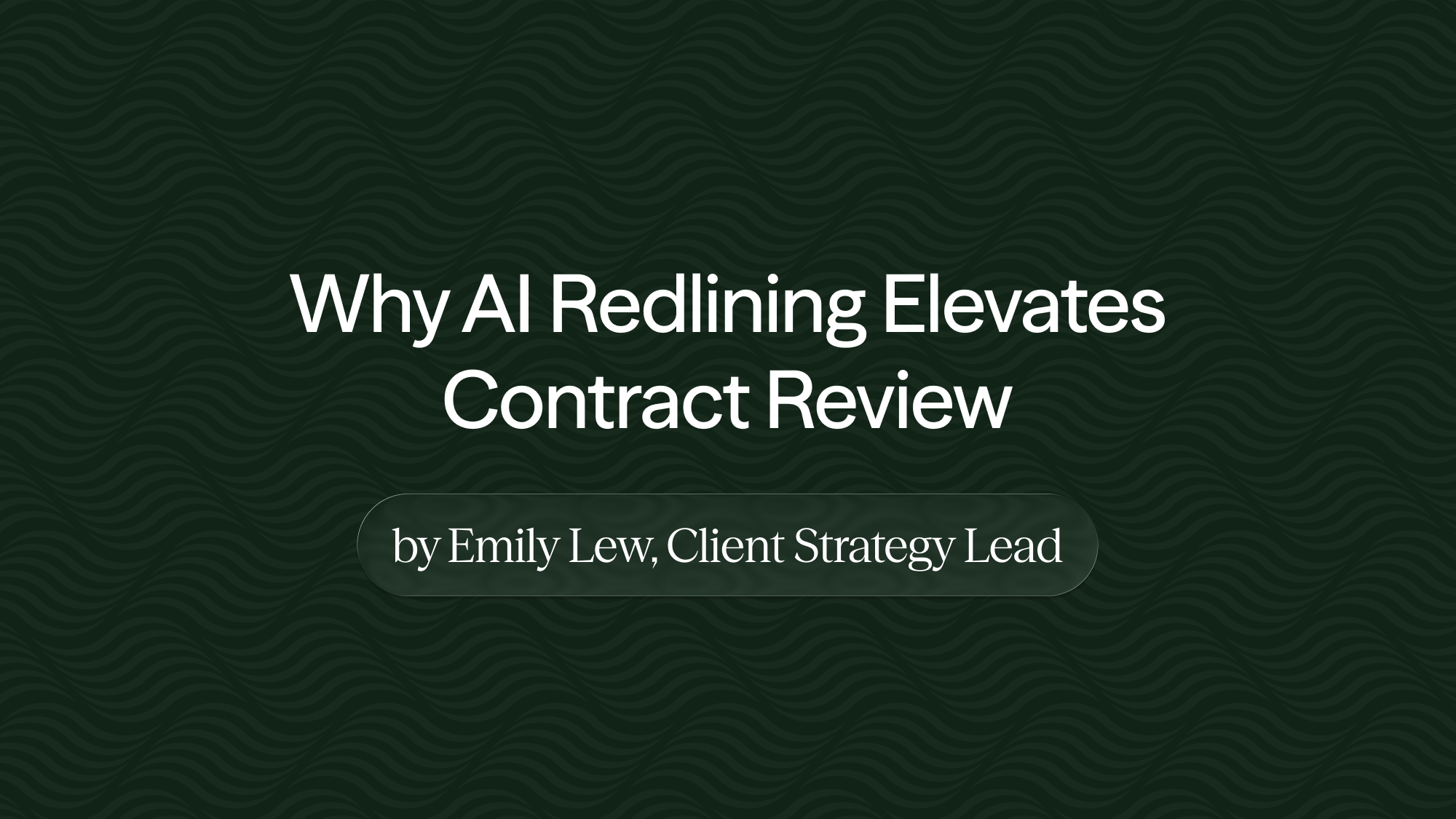Reimagining Build vs Buy: Achieving Growth with Legal AI Software
This blog explores the key factors of the build vs. buy debate in legal AI as it stands today and offers a forward-looking perspective on how to think beyond the initial decision of ‘how to introduce legal AI into the firm’ to support future growth.
Reimagining Build vs Buy: Achieving Growth with Legal AI Software
As AI has become commonplace in legal, firms have had to investigate the best way to introduce legal AI into their workflows: to build or buy. But as the build versus buy conversation evolves, and legal technology matures, a new question emerges: how can firms best evaluate the build versus buy decision through the lens of long-term growth?
The capabilities of AI in the legal sector are still in their early stages, and firms are just beginning to contribute to the human feedback loop that refines AI tools to reduce user friction. Firms must evaluate how to stay ahead of the ongoing evolution in legal AI to remain strategically differentiated.
Shifting the mindset from “how do we enter the AI space” to “how do we excel in the long game of AI adoption” is a crucial consideration that should guide today’s build vs buy conversation. Simply entering the AI space isn’t enough. To achieve success in the future, firms need to consider growth in the build versus buy conversation.
Align legal AI software with business goals
Firms need to evaluate the capabilities of legal technology as they best align with their larger business goals.
Rather than approaching the build versus buy decision seeing legal AI as a siloed strategy, firms need to delineate where AI can best support ongoing business objectives. To accomplish this, firms need to enable key stakeholders–from buyers to users–with the knowledge to make informed decisions on the opportunities and risks of AI technology as they apply to firm initiatives.
Identify opportunities and risks
The legal sector's bar of success is one of excellence. To meet the minimum viable requirements, a solution must prove accuracy. Lawyers need to feel confident in how AI can enhance their efficiency without introducing uncertainty. By understanding the strengths and limitations of AI, lawyers can leverage AI tools to amplify their work while compensating for any weaknesses. This requires a nuanced understanding of AI's role in the legal process, positioning it as a tool to aid—not replace—human expertise.
Leverage AI for strategic differentiation
Consider how technology can best differentiate your firm in the market. It’s essential to recognize that AI is not a catch-all solution; it’s a tool that should be aligned to address specific business challenges.
For example, for Orrick, a firm that, year after year, is ranked highly on the Fortune Best Places to Work list, improving attorney satisfaction is incredibly important.
Orrick uses DraftWise to support the firm’s M&A practice and commitment to innovation and legal best practices. The platform supports Orrick’s business goals by meeting attorneys where and how they work, eliminating the need for users to “workaround” the tech.
“People are way more efficient in their work – attorney satisfaction is overall higher,” added Sarah Gates, Innovation Attorney.
Allocate resources for success: legal AI talent
Firms should evaluate available talent and resources to determine how they can best grow with legal AI over time. A firm's expertise and the extent of available talent for development should inform its approach to building or buying legal technology.
Many firms, including Vault 10 and AM Law 100 organizations, have ventured into developing their own AI assistants, similar to enterprise-level ChatGPT models, with relatively minimal resources. This trend is largely driven by the accessibility of open-sourced technology enabling ease in getting initial solutions up and running.
However, firms are discovering that while it’s feasible to deploy a basic chatbot, scaling solutions to meet diverse client needs and maintaining high-quality standards requires substantial development resources and expertise over time.
In other words, resources available today lower the barrier to building AI technology. But to grow with evolving client needs and technology standards, firms need to consider if they have the legal AI talent available to succeed over time.
Consider evolving client needs
The reality is that most firms are not software development shops, and initial enthusiasm for building custom solutions can be tempered by practical challenges. Developing sophisticated applications like generative AI tools involves more than just deploying a simple chatbot; it requires a deep understanding of AI capabilities and a significant investment in development teams with specialized skills.
As firms gain experience, they are learning which solutions are manageable with their current resources and which would benefit from outsourcing to specialized providers. This insight helps firms navigate the complex decision of whether to build in-house or invest in external solutions, aligning their technology strategy with their business objectives more effectively.
Successful vendor relationships: trust enables growth
If a firm does choose to buy legal AI technology, they should prioritize growth potential as a key factor in the vendor decision. As AI continues to mature, law firms must prioritize growth relationships—both internally and with technology partners—to stay competitive.
When evaluating a vendor for legal technology solutions, it's crucial to assess two factors for long-term success: immediate functionality and alignment of longterm vision. A successful vendor relationship requires both the provision of a solution to an existing problem as well as a clear roadmap that accounts for the evolution of solutions over time.
A vendor’s commitment to adapt with the pace of legal technology is essential. In partnering with a vendor, assess whether their platform is designed to scale and grow with your needs or if it addresses a current, specific issue. Evaluate their product and customer focus to ensure that their solutions will remain relevant as legal technology advances.
Finding a trusted vendor not only supports immediate needs but also fosters a relationship that adapts and thrives as your firm’s technological requirements evolve.
How DraftWise aligns with customer goals
The DraftWise team provides ample feedback opportunities for its customers, taking the time to understand what is working – and what isn’t working – for users, so that they can iterate quickly and improve the product.
“It's appealing to us to be able to work with a company that is willing to prioritize clients and their requests for feature updates into their road map. DraftWise does a great job of making the product practical. They like lawyers weighing in.” - Sarah Gates, Innovation Attorney, Orrick
Learn how DraftWise supports a lasting AI strategy
Like any technological shift, the evolution of AI in the legal industry will adapt over time as users, builders, and buyers expand their lived experience.
Connect with the DraftWise team to learn more about how a growth mindset helps navigate this ongoing evolution, and enables firms to stay at the forefront of legal technology advancements.
.avif)



